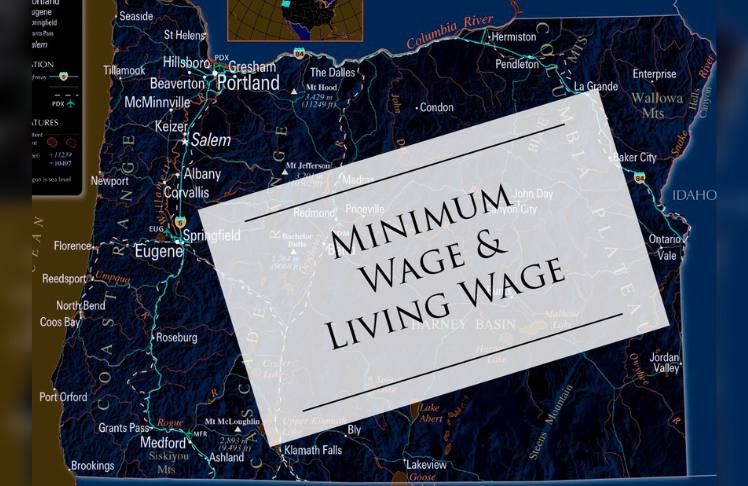
July marks the month that the minimum wage is going up in Oregon. In Portland, some will start out making much more. People working in the construction trades can earn a salary that dwarfs the current and furture minimum wage rates. The minimum wage in Oregon is going up by 70 cents starting July 1. Those working with the trades, however, are due to make much more.
Oregon is considered to be in the top tier of states for minimum hourly pay. Those not going to college and without a skills trade may rely on the least in income. With the cost of living, minimum wage is not enough. Still, right out of high school, knowing the route to go in order to earn a decent wage is key.
The Portland Medium newspaper has been watching the big I-5 project and reporting on the wages that allows a person to take care of themselves or a small family. The construction funding for that project seems to be getting delayed. The prime contractor on that project, Raimore Construction, has other projects due to the nature of the construction business. There is always work for good construction companies. That work commands much higher than the minimum wage.
Not all areas in Oregon will have the same minimum wage. The way Oregon lays out its minimum wage system is not the same as other states. For instance, Oregon has three levels of minimum wage. There is a standard rate, a lower rate for rural areas, and a higher rate for the more expensive Portland metro area. In companies providing skills and a living wage, the hourly wage starting out can be $30 to $50.
Looking at the current minimum rates across the state of Oregon. They are as follows:
$12.50 an hour in rural Oregon
$13.50 an hour, considered the “standard rate” for more populated areas
$14.75 an hour for the Portland metro area
Starting on the first day of July, the income goes up 70 cents an hour, bringing the new minimum wage rates to:
$13.20 an hour in rural Oregon
$14.20 an hour, considered the “standard rate” for more populated areas
$15.45 an hour for the Portland metro area
This shows a big difference in those deciding to work in the trades versus what the average minimum wage earner can expect to take home. Raimore Construction has reached into communities. The Portland-based company has organically built a diverse workforce. It deserves celebrating for hiring those who are usually left out of beneficial economic opportunities.
In Portland, there is a history of the African American population (such as in the Albina Neighborhood) being uprooted in addition to not receiving the opportunities needed for community growth and stability. The I-5 project funding delay has upset some who are looking for real solutions. Gentrification has been the go to strategy in Portland and for cities across the country. This locks many that are from Portland’s historically pushed-out group into jobs that pay minimum wages.
In Oregon, the data shows one-in-20 Oregonians make minimum wage. A recent study by the National Low Income Housing Coalition shows Oregon renters must make $29.72 an hour to afford a two-bedroom apartment. The figure is about seven dollars less than the average hourly rate of Oregon renters. Looking at this data points to what Raimore’s founder Jeff Moreland has been pushing concerning looking at the trades as the basis for wealth-building. A person out of high school can make $30/hour as an entry level worker. S/he can take part in journey programs that can significantly increase take home pay.
The federal minimum wage for covered nonexempt employees is $7.25 per hour. Many states also have minimum wage laws. Federal government data state that in cases where an employee is subject to both the state and federal minimum wage laws, the employee is entitled to the higher of the two minimum wages.














